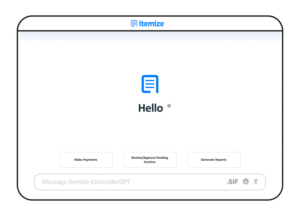There are many reasons why companies love artificial intelligence, especially accounting. 79% of businesses have reported that AI has boosted their productivity. And 80% of executives believe that using AI in accounting will give their organization a competitive edge.
But is there a risk to using AI solutions?
Whether you apply automation to Accounts Payable (AP) or Accounts Receivable (AR) processes, your new technology will be handling extremely sensitive data from clients and third-party vendors. Depending on your chosen solution and current infrastructure, your organization could be vulnerable to fraud or become non-compliant.
While there are certainly an abundance of benefits related to AI solutions in accounting, it’s important to prepare yourself for potential risks.
What are the risks with AI solutions?
Most of the risks associated with AI solutions tend to revolve around compliance and unexpected costs due to inefficient configurations.
On one hand, businesses should be aware that AI systems are not infallible, and they may require controls to handle exceptions or output errors. Depending on the software, you may need to train a team in-house to deal with potential errors, which will add to your headcount. Due to the specified skill set required, your new employees will expect higher salaries and benefits. These potential hidden expenses can offset your savings from switching to automation.
Another potential risk hinges on the data your AI system will process and how to provide explanations. In financial services, in particular, it is critical to have a process for making certain business decisions on the basis of compliance and documentation. Therefore, you will need to ensure that you understand how you are implementing the technology and that all processes around it remain compliant.
Data security and ownership is another major factor. Sensitive data, such as credit card numbers, names, addresses, and other personal information, need to be stored securely as per regulations.
According to Deloitte, dirty data is perhaps the biggest risk when it comes to AI. But it isn’t the only concern. Other questions to ask yourself when approaching AI solutions are:
- What is your firm’s risk appetite and how does AI factor into that?
- Are there controls for AI to reduce potential risks, such as fraud?
- How often does a specific solution require reviews to ensure compliance?
- How does your AI system interact and store sensitive customer data?
- Who has access to data passed through your AI system, both from your company and your third-party solution?
- What controls does your vendor have in place from their side to deal with compliance and regulations?
What are security measures to consider
Since AI for financial ERPs deals primarily with sensitive data and confidential information, you will need to ensure your product has security measures in place. Based on your platform, you may need to adjust in-house controls.
Whatever vendor you work with should be able to provide their security measures, whether or not they perform penetration testing and related information. You should look at how your vendor handles and stores your data if they comply with your region’s compliance requirements, and how their system might impact your regulatory requirements.
Understanding the gaps in your potential solution will help you understand how much you may need to spend in-house, and whether or not the cost-savings will be worth it.
What are the benefits of AI?
That said, there are many other benefits beyond general savings. Implementing an AI solution can help you free up time for your staff, reduce long-term costs and overall headcount, boost accuracy in reporting, as well as reduce potential fraud.
Outside of automating repetitive tasks like data entry, receipt reconciliation, VAT capture and processing, data extraction, and other time-consuming tasks, AI systems can also learn from their mistakes or from new input. Over time, these intelligent frameworks become more and more accurate. Furthermore, these systems can flag suspicious activity, making it far easier to identify fraud and human error.
Since AI can take over all of these tedious functions and do so with a higher accuracy rate, your team can focus on high-value activities.
Next Steps
While there are many items to consider, AI isn’t going away anytime soon. At some point, your company will have to add autonomous technology to remain competitive. What really matters is whether your solution is secure and compliant, so that the risks are minimal in comparison to the rewards.
Our robust solution for AP automation provides higher quality data capture and lower risks, with clients increasing their fraud and compliance assessments by 10 times. To see if we’re a good fit for your business, you can book a demo here.



